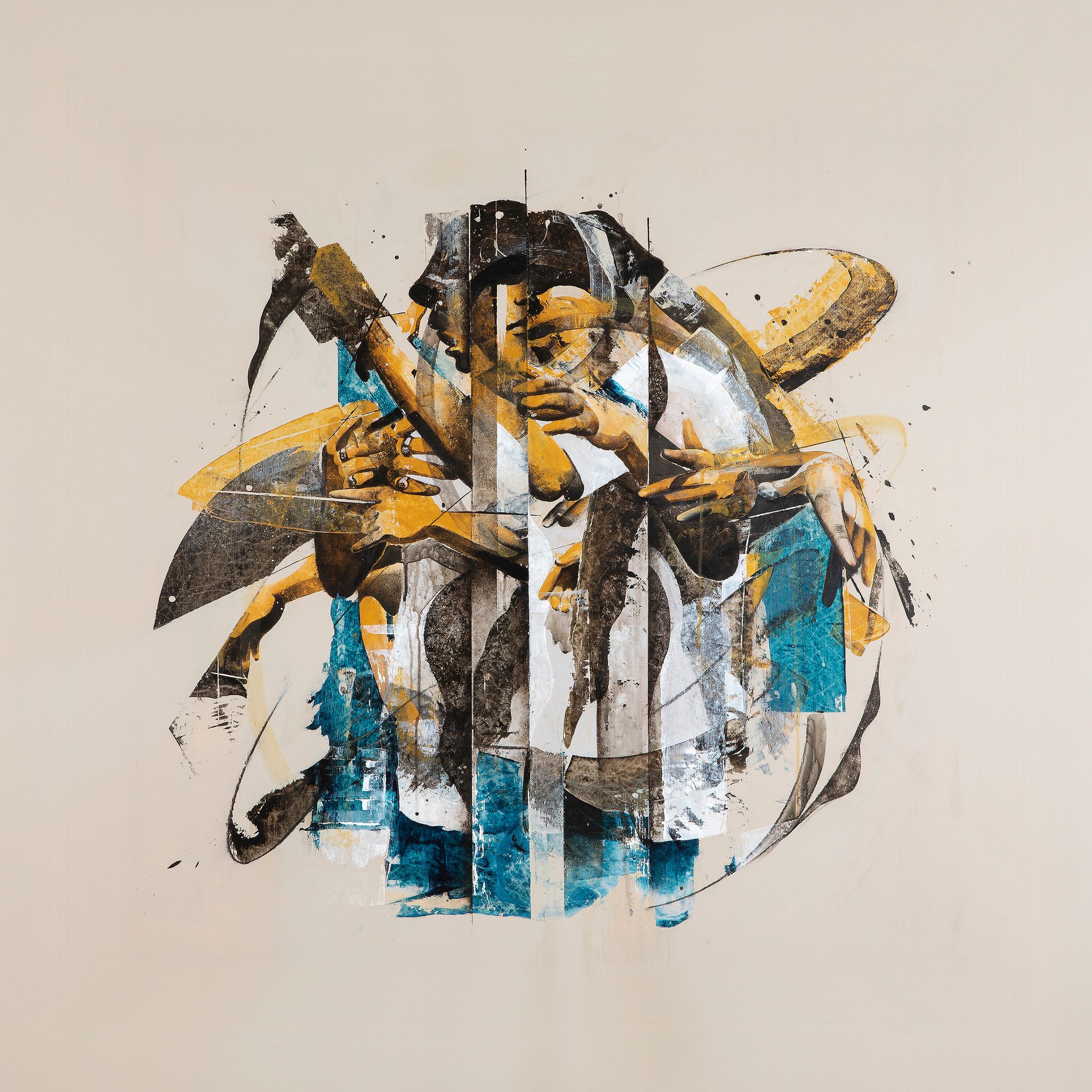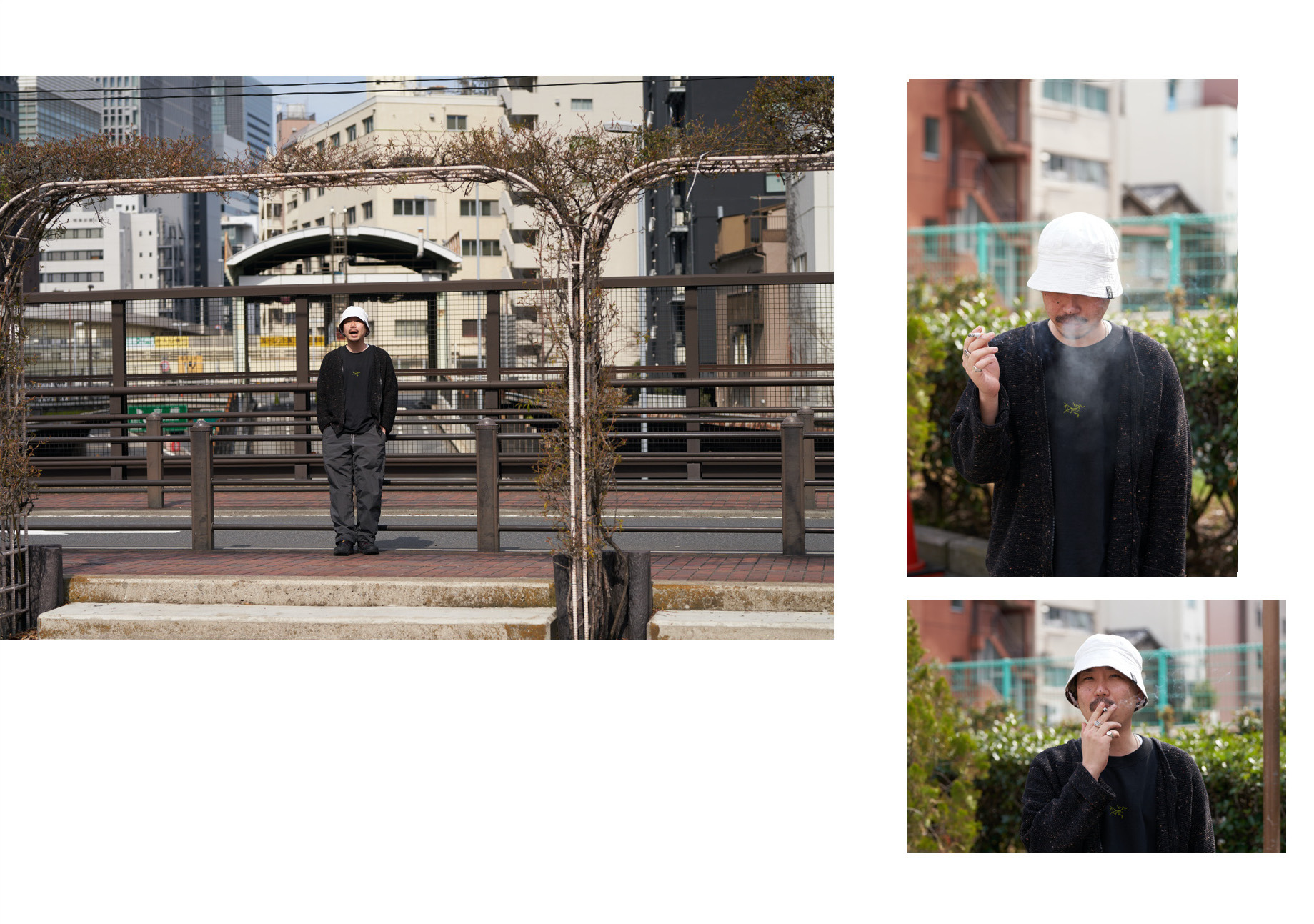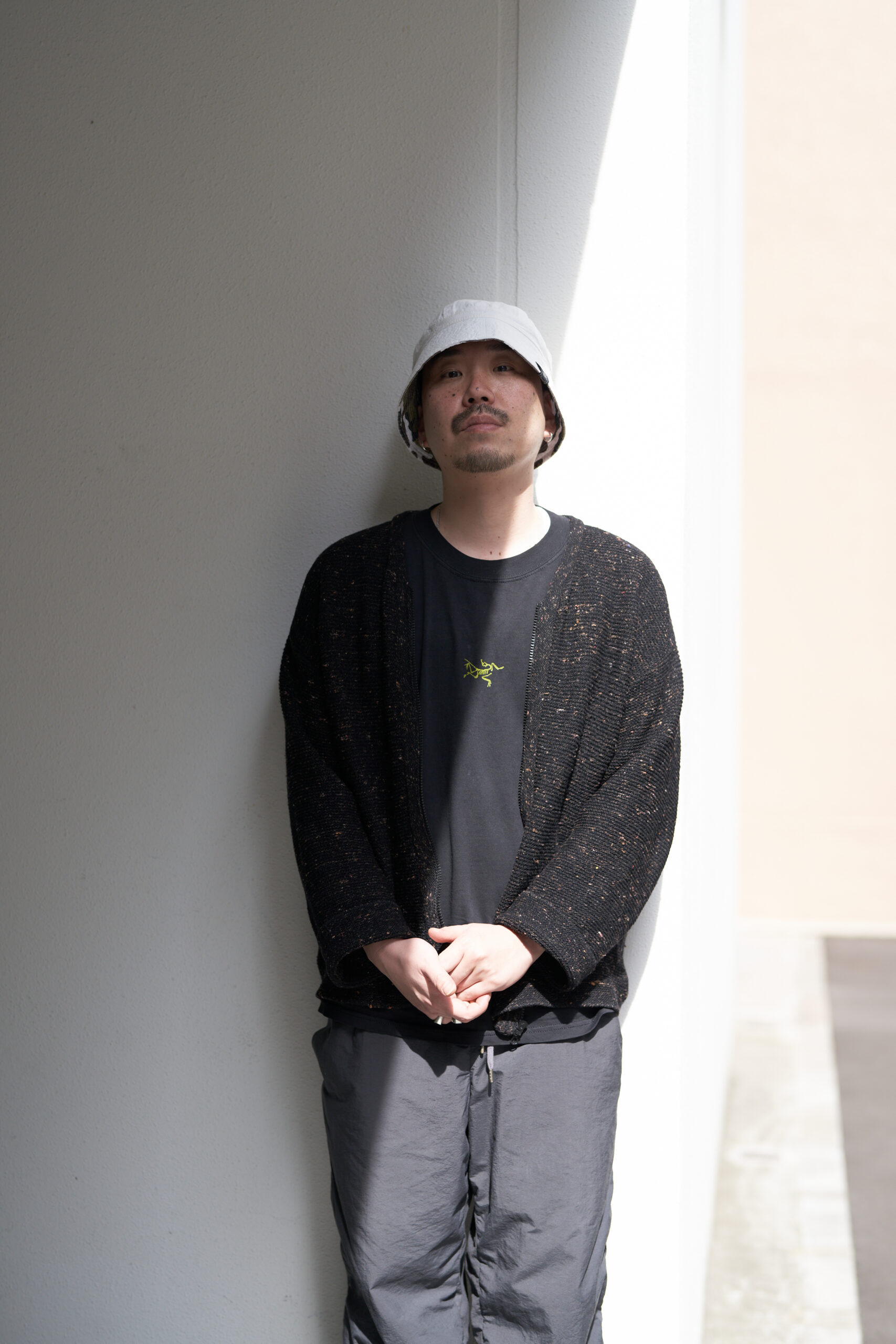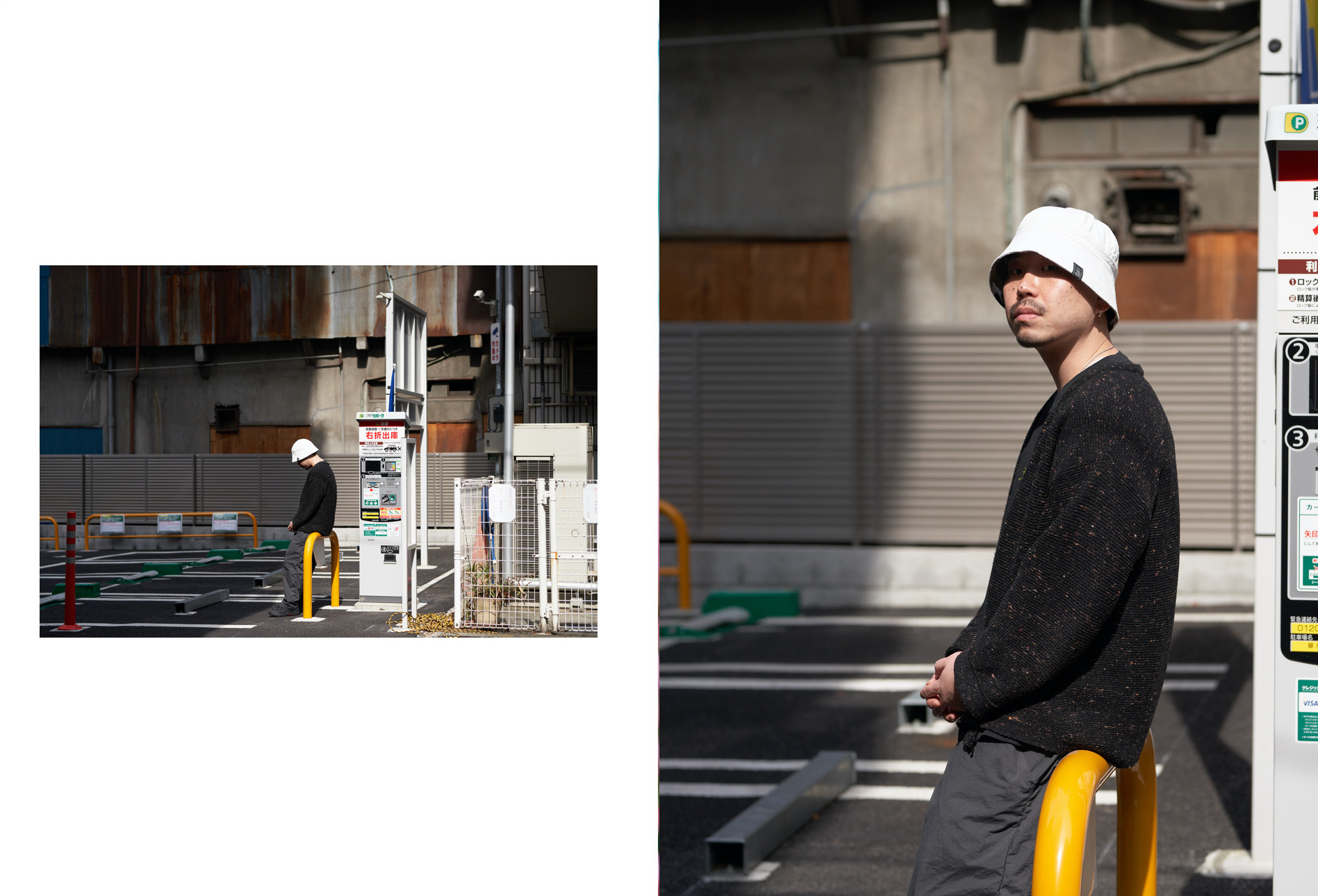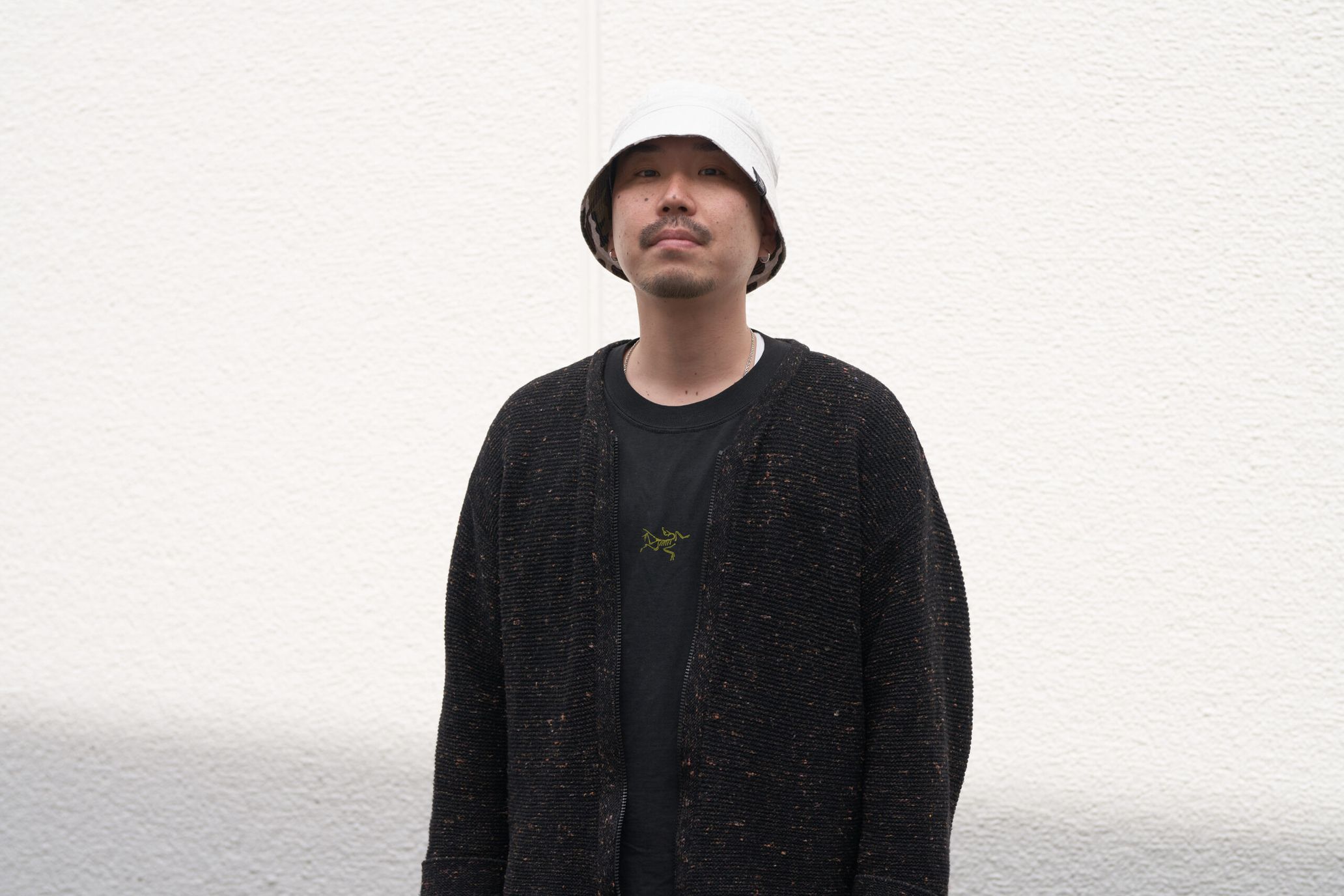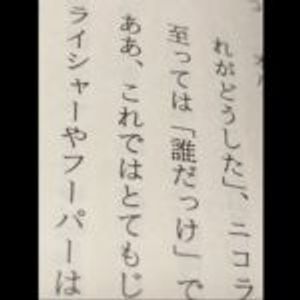In the beginning of the 10’s generation (a decade from 2010), Campanella has distinguished himself as one of the NEO TOKAI rappers and garnered fans with his distinctive sound and rap. The man has been writing songs freely without bothering to pivot to certain themes and directions, and has done nothing different for his latest release, AMULUE, yet it is certain that the light has become brighter on him. While Covid casts a pall over the world and live shows are on hold, Campanella has been rather fueled by the vexing situation, putting out various livestream shows and taking a leap forward with his strong will to establish the future of ‘now.’
Music made with dogged perseverance in the midst of the pandemic
(MADE DAY MAIDER / AWDR/LR2)
――Since the pandemic, has your awareness towards music changed?
Campanella: Doing gigs in the weekends and recording on a reg was my life, but then live shows were taken away. Broadly speaking, I had to start thinking about stuff that hadn’t been brought to my attention before, like money, and got a bit fretted—but I wasn’t interested in writing about it in my lyrics. The only song emoting in the album would be “Minstrel,” which is a song that sort of talks about Covid and the current circumstance and mood.
――What was your feeling like when making the album?
Campanella: I’ve been doing music just wanting myself and friends to be amped, but since I got great reviews for my previous album, I made the new album hoping for a lot more people to hear it.
――What kind of efforts are put into the new album?
Campanella: Would it be weird if I say there’s none… [laughs]. Honestly, I don’t think there’s any. I started working on the new album soon after I put out the previous one, so I had plenty of time to work on it.
Unraveling the musicality from the album title—Searching for ‘more fun stuff’
――I heard that the title AMULUE, comes from the name of a store that used to exist in Kasugai city, Aichi—located near your hometown.
Campanella: It was a store that was like a warehouse full of knick-knacks, furniture, and books. They were selling CDs, too, and had listening stations, where you can listen to about ten audio samples—so, I would listen and buy the ones I liked at the store, and that was pretty much my life as a teenager.
――What kind of music did you find at the store?
Campanella: I was really into Electronica and Post-rock, and listened to a lot of those. Also, releases from Warp Records as it was the golden age of Flying Lotus, and music from Iceland….
――When you say, ‘music from Iceland,’ is that like Sigur Ros?
Campanella: Yeah, that’s it. Jónsi from Sigur Ros and his partner Alex Sommers made a visual art book Riceboy Sleeps, and later created ambient music—anyway I bought the book on a foreign website, and even made a community of it on mixi. I was the owner of the community and Free Babyronia was the co-owner [laughs]. Back then, guys like Ramza, Free Babyronia, and I were relentlessly digging for stuff like that.
――How do you think your predilection is linked to your rapping and Hip Hop music?
Campanella: I’m not sure. Although there was a short period of time where I wasn’t listening to hip hop, I’m organically a fan of the music; and my homies, Ramza and Free Babyronia were making tracks since we were teenagers, and I just naturally rapped over those tracks and developed my own musical style.
――Ramza and Free Babyronia are the mainstay of the production of your latest album, and the beat of their tracks and their choices of samples are eclectic that they aren’t focused solely on Hip Hop—so, would you say that the eclecticism of the new record wasn’t your own idea?
Campanella: Since I was younger, simply, I’ve been thinking that I have to do something dissenting from others in order to stand out. For example, back when rappers were saying that they want to rap over sounds like the ones DJ Premier would make, I thought that there’s no need for me to do it if everyone’s doing the same thing. Maybe I was a little twisted.
――Do you still feel the same way, though?
Campanella: I don’t even need to say it out loud, because originality is a common factor when making music. However, it becomes ambiguous with Hip Hop as there are so many people who try to create something that are similar to the existing tunes. For example, nowadays, there’s Type Beats (beats that are made emulating the styles and tracks of popular artists, and uploaded on YouTube and other purveyor websites by putting a well-known artist’s name)—artists request the beat makers: “We want tracks like that artist’s,” sing and sound exactly like the referenced artist, and they still become popular even though the fans can tell the song source. I’m fine with it as long as the artists are happy with what they’re doing.
But I wouldn’t do it. I feel like there’s much more fun stuff out there, and I’ve actually never requested for a particular beat to someone before. Usually, the beat makers come up to me like, “Don’t you think this beat’s cool?” and have me listen to it—and if I say “lit,” we carry on with it.
――In the album, there’s a line, “I don’t give into fads / shift out of the small village” (from “Bell Bottom”)—does this reflect those sentiments?
Campanella: Well, that wasn’t implying about Hip Hop, and it was more about my mind.
――For the album, (for the song “Think Free”) you’ve collaborated again with Yoshie Nakano (from EGO-WRAPPIN’), and welcomed Gofish, SOSOSCLUB, and Mocky for the production—who by the way, are people outside of the Hip Hop field; and I thought this list of collaborators mirrors your notion. Also, Chinza DOPENESS, JJJ, and ERA joined rapping in the album—did you give them any directions?
Campanella: I usually don’t have a specific theme, even when I ask someone to write for me or do a song together. Usually, either me or the collaborator writes the overall lyrics, and we elaborate from there. Not even the people around us tell us, “We want you to write this type of song.”
――So, the songs aren’t created with a certain theme, but made by perceiving each other’s vibes.
Campanella: That’s exactly it. If the other person has the same sensibility as you, you don’t need to have a specific theme—you can write a song by sharing the same vibe with each other.
AMULUE—made with the cultivated means of expression over years—and the future
――By the way, in your previous record, PEASTA, there are songs about you looking coldly at your surroundings, and your conflicted mind; yet for this album, even though it’s got the aggressive rapping and self-boasting lyrics, as I listen to it further, it sounds as if you’re rather affirming the reality and the positive and peaceful aspects get stronger. It might be a strained interpretation, but the record seems to put people’s hearts at ease especially after they’ve been beat from the pandemic.
Campanella: It’s probably affected by the fact that I’m over thirty [laughs]. I personality felt that the record flows beautifully as an album.
――It’s like you’ve become softened by maturity—I also felt it from the line “See Ya to Nega / Consistently keeping the soul” in the song “Think Free.” Does it mean that the type of music you want to express through has changed?
Campanella: Honestly, I don’t think so. But in fact, I feel like I’ve become more capable of expressing various sentiments. I don’t think I would’ve been able to write a song like “Think Free” couple years back.
“Think Free” featuring Yoshie Nakano from EGO WRAPPING’
――I see. Tell us how you feel about the finished record.
Campanella: I really like it and I’m satisfied with how it turned out, but I also want to keep nurturing it. Like with my previous record, PEASTA, I began liking the record even more from doing multiple gigs. Anyway, I want the new album to be played at various occasions and become a record that’s heard for a long time.
――Tell us your thoughts on post-Covid.
Campanella: Well, I don’t want to change too much in what I do, but I would be sad the most if I lose something obvious that has always been there. Clubs and venues are like a receptacle where we belong, and when everything is over, we definitely want them to be there to catch us. It’s just like that—and we might need to be thinking a lot of things as artists, but we’ve still got to keep going or else no one will be waiting for us, and younger artists won’t be looking up to us. So, we’ve got no time to be bummed out with the situation, and just got to keep moving forward.
――As you move forward, what kind of music is ideal to you now?
Campanella: Just really simply—that would be the kind of music that could be played over and over again. A lot of people ask me how I come up with the lyrics, but to me, I want them to sound like beats and I don’t put too many thoughts into them. So, I’d be totally happy if people just liked the way they sound to their ears.
――So, the listeners could just like a verse from your lyrics, or say a part of your lyrics randomly popped into their heads and it was relatable to them….
Campanella: I think that’s what rap is about. That’s why rap lyrics rhyme, and it’s what rappers should do. It’s totally normal getting deviated from the subject while writing lyrics, especially when you’re inspired like “I wanna say this” or “I wanna rhyme with this word.”
――And the listeners discovering those details as they listen would be a step forward for you to your ideal music.
Campanella: I will be insanely happy if the listeners could feel it.
Campanella
Born in 1987. A rapper from Komaki city, Aichi, and currently based in Nagoya. He has been gaining attention in the scene from releasing a free mixtape, forming a unit COSAPANELLA with C.O.S.A, and collaborating with TOSHI MAMUSHI. In 2014, he released his first solo album, vivid. Subsequently, in 2016, he released his second album, PEASTA, which was produced by his sworn allies, Ramza and Free Babyronia; and revealed his high musicality. The release party of AMULUE is scheduled on March 22nd, at Shibuya WWW X.
Instagram:@campanella_mdm
Twitter:@campanellapsy
Photography Go Itami
Translation Ai Kaneda


